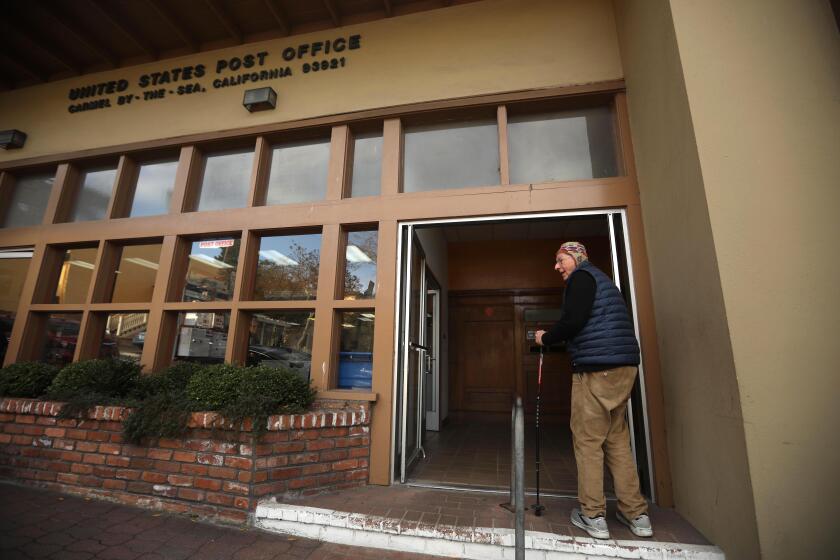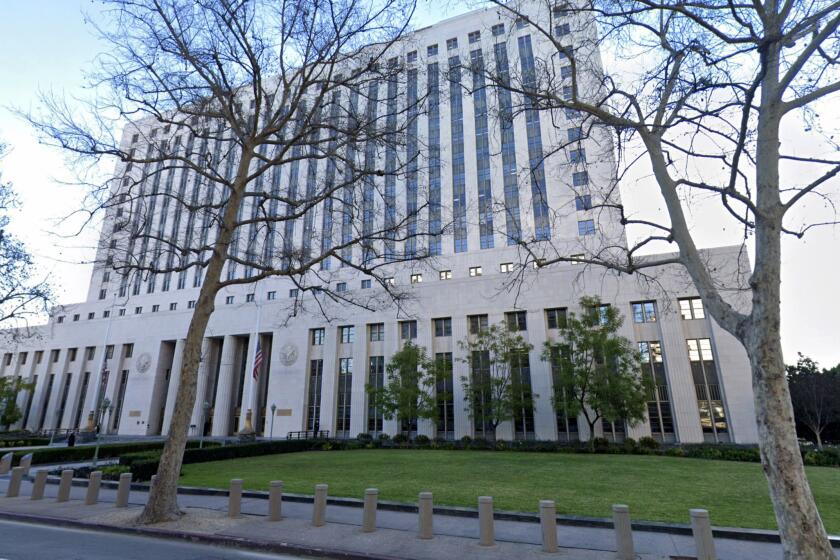Prop. 187 Protest Has Sympathizers an Ocean Away
The caller from London was earnest. He said he was part of a group of 15 Rhodes scholars studying at Oxford who were joining the symbolic three-day hunger strike staged by Southland students protesting Proposition 187.
“Although the fast is centered at Olvera Street and in the United States,” the young man said, “I wanted you to know that there are American students here at Oxford who support it.”
The student, who hails from L.A.’s Westside, was home for the November elections and knew of my opposition to 187. So he decided to call from England to let me know of the action taken by him and his fellow Rhodes scholars.
Sometime during the call, he said his name was Eric Garcetti. At first, the name seemed strange to me. How many Garcettis are there in England? But he reminded me that he was from L.A.
“Hey, the district attorney here is Gil Garcetti,” I spoke up. “Are you related to him?”
The voice on the phone paused for a few moments. Then he said, “He’s my dad.”
*
Eric, 24, doesn’t think of himself as the son of the D.A. He thinks of his father as just a lawyer who is a prosecutor. Gil Garcetti--who became district attorney in 1992, the same year Eric won the prestigious scholarship--hasn’t been in the job long enough for the son to think of himself as the D.A.’s son.
Eric also is independent enough to say he didn’t ask his father for permission before calling me to say he was on a hunger strike against Proposition 187. “He didn’t put me up to it,” Eric said.
But he did say that his mother was uneasy about his involvement in the hunger strike. She relented, however, when he assured her it would only last for three days.
It’s easy to see why the younger Garcetti would be interested in such things. He readily identifies himself as a Latino, partly because his father’s parents were Mexican. So he understood how Proposition 187 would hurt Latinos.
In addition to earning two degrees at Columbia University, he has volunteered with human rights groups in Ethiopia and Burma. He was a volunteer for the unsuccessful gubernatorial campaign of Kathleen Brown, helping her formulate policy statements. And, like me, he worries about L.A.’s future ability to deal with its diverse population.
With such a willing correspondent in England, I couldn’t pass up the chance to hear from Eric at the end of each day of the strike.
Drinking only water, the 15 fasting Rhodes scholars went to classes and tried to interest other students in their cause. Each evening, they would meet in a forum to discuss such topics as immigration as a human rights issue, immigration in Britain and, of course, immigration in the U.S.
They attracted some attention from British reporters, who were interested in anything connected to La-La Land. And they did make some converts.
A black student from South Africa quickly recognized the implications of 187 and joined the fast. And Eric said: “A friend told me, ‘I’ve been out on a lot of picket lines, but I haven’t taken on activism in such a personal way. Thank you.’ ”
At one point, I told the young Garcetti that I had recently written that I thought the time for hunger strikes to achieve political goals has passed, mainly because they can’t sustain long-term attention to problems.
Eric wasn’t deterred. “I agree with you that they’re not the most effective tool,” he said. “It’s more of a last-ditch effort . . . to do something here. Proposition 187 is just the first battle. There will be many others.”
*
During our chats, Eric reminded me of his roots. His mother is Jewish and his father’s parents, despite their Italian surname, were Mexican. A grandfather was active in the Mexican revolution of 1910. “My dad’s biggest regret is that he didn’t learn (fluent) Spanish,” the son said. “I think I speak more Spanish than he does.”
It was in that vein that we chatted about the fact that the district attorney also had called me last week--about my criticism of his office for declining to prosecute the man who shot and killed a tagger in the San Fernando Valley.
But it was more important for Eric Garcetti to talk about how the 15 Rhodes scholars ended their fast on Saturday. After collecting 100 signatures on a petition urging President Clinton to oppose similar measures aimed at immigrants, the strikers at the stroke of midnight ate tortillas and salsa.
“I went to four or five stores to find some Mexican food, but it was worth it,” the D.A.’s son said.
More to Read
Sign up for Essential California
The most important California stories and recommendations in your inbox every morning.
You may occasionally receive promotional content from the Los Angeles Times.






